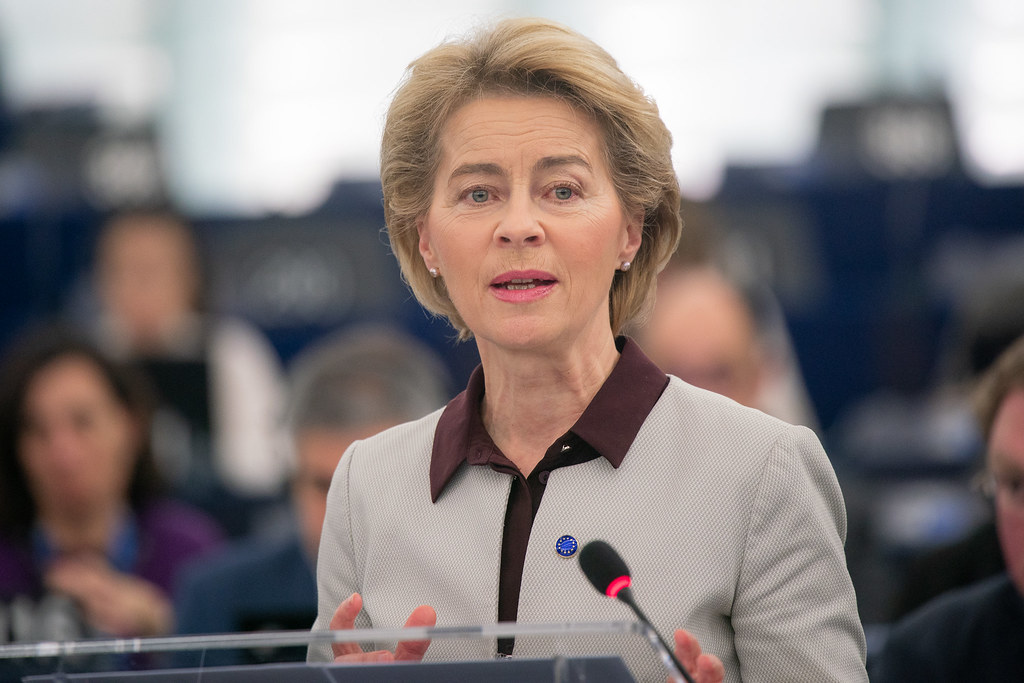CAIRO (Transatlantic Today) – The European Union, Egypt, and Israel announced an agreement on Wednesday to enhance liquefied natural gas supply to EU nations, reducing their dependency on Russian supplies while the Ukraine war drags on.
According to European Commission chief Ursula von der Leyen, the accord will see Israel export additional gas via Egypt, which has infrastructure to liquefy it for export by sea.
The accord, according to Von der Leyen, is part of Europe’s attempts to diversify energy supplies away from Russia and buy hydrocarbons from “other trustworthy suppliers.” Following big offshore discoveries, Egypt and Israel have emerged important gas producers in recent years.
Under the terms of the agreement, the EU will assist Israel and Egypt in expanding their gas exploration and production in their territorial waters. According to ABC NEWS, it is unclear how much energy the EU will acquire from either nation.
The European Union received about 40% of its gas from Russia last year, and sanctions against Russia for its ongoing assault on Ukraine have been tough to impose.
The agreement was reached as a result of Russia’s attack on Ukraine, which triggered a European energy crisis, according to Israeli Minister Of Energy Karin Elharrar. She added that it also demonstrates the growing cooperation between Israel and Egypt, two erstwhile adversaries.
Egyptian Petroleum Minister Tarek el-Molla called the agreement “an important milestone” in Egypt-EU-Israel cooperation. Egypt, the Palestinian Authority, Italy, France, Jordan, Greece, Israel, and Cyprus are among the participants of the East Mediterranean Gas Forum, which he predicted will lead to more cooperation.
According to the agreement, Israeli gas would be piped to Egypt’s LNG terminal in the Mediterranean Sea before being shipped to European coasts via tanker, according to Israel’s Energy Ministry.
Off Israel’s Mediterranean coast, two active gas fields have an estimated 690 billion cubic meters of natural gas, and a third offshore rig is in the pipeline. It has already secured gas export deals with Jordan and Egypt, who are both neighbors.
Since the 2011 insurrection that deposed long standing autocrat Hosni Mubarak, Egypt’s massive natural gas infrastructure in the Mediterranean have been largely inactive.
According to Refinitiv Eikon, a global supplier of market and financial data, Egypt exported 8.9 billion cubic meters of energy resources in 2021 and 4.7 billion cubic meters through May this year, thanks to recent large finds. The majority of the exports, however, are destined for Asian markets.
The facilities have been restored and upgraded by Egypt’s government under President Abdel Fattah el-Sissi in recent years. Egypt struck a $15 billion agreement to transport natural gas to Israel in 2018 with Israeli corporation Delek Drilling and its American partner, Noble Energy. Egypt wants to establish a regional energy hub, which von der Leyen believes the agreement reached on Wednesday would help achieve.
Meanwhile, Von der Leyen and el-Sissi met to discuss the food crisis brought on by Russia’s attack on Ukraine. The conflict, which has shook the global economy, has had a significant influence on Egypt, the region’s most populous country.
The EU will grant 100 million euros (about $105 million) for “immediate relief” to help Egypt, the world’s largest wheat importer, tackle food shortages in the short term, according to a European official.


























